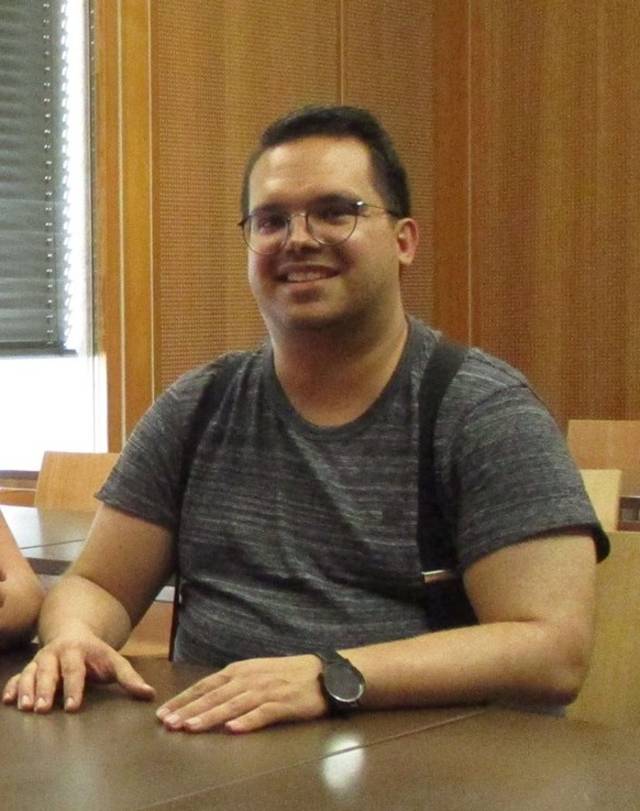Psychological impairment
Field report of a former student of the University of Cologne
I am a mentally impaired student of business administration at the University of Cologne [editor's note: in the meantime the student is no longer enrolled] with a so-called schizophrenic psychosis. This may sound wild at first, but it is like many other mental illnesses. My impairment lies in the field of tension between good or bad stress, recovery and sleep. My impairment requires a continuous, balanced load with breaks and maturation periods throughout the entire study period in order to keep fluctuations in load as low as possible, e.g. in case of teething problems at the beginning of the lecture phase, during exam preparation or in case of additional stress due to upcoming exams.
It is outwardly finely perceptible that stress-related absences occur in my case, which are not caused by a cold alone, but by the course situation, in which a lot of knowledge and skills are imparted at a high pace. In case of a stress imbalance, this leads to a disease-related malfunction of the selective perception and speech comprehension, which only my therapists notice apart from me. For outsiders it looks as if someone is missing in a course, but in my introspection the experience of nonsense in the learning context then begins, which either has to be stopped by an intensive recovery phase, or with a lot of effort, separated from meaningful learning. I have to interrupt the preparation for the exam and can start again at the earliest a considerable time after the actual exam date, if not in the coming semester.
This results in a derailment from the regular timetable. Relationships with fellow students are made more difficult by the fact that they no longer meet in the same classes. Perhaps the best solution for me would be to study on my own, with sporadic attendance of lectures and visiting consultation hours. However, this would lead to social isolation, which in turn is characteristic of my impairment and thus carries a double risk.
My relationships with fellow students are emphatically independent of attending classes together and must be of an inter-semester character. The usual semester-wise commonalities with fellow students are therefore not present with me. Lecturers have to experience that the continuous attendance of their courses is not conducive to my goals and that I therefore only participate sporadically in classroom teaching and instead visit the office hours for my self-study.
Due to my impairment, it is often difficult for me when planning the examinations to be taken, to determine their quantity per examination cycle in relation to the current stress balance and to implement them in the long term. Especially if no repeat examinations are offered at the end of the semester or if course contents are close to each other and can be checked weekly in one rhythm, but the own learning rhythm is not taken into account over the course period.
I would prefer to ignore my impairment and therefore work towards freedom from impairment. However, a learning pace below the usual is characteristic for my clinical picture. To be accompanied in this process, or even during a learning standstill, however long, is not a matter of course, but for me it is necessary.
A permanent medication is common for my impairment, but the side effects are very annoying. Through targeted therapy and a targeted lifestyle control it is possible to reduce the medication to a minimum, possibly even to do without any drug protection at all. However, such reductions in medication must be observed gradually, very carefully and together with my therapists. Lifestyle control includes leaving the home and maintaining an increased sense of well-being through therapy, sports, leisure, reading, writing, learning and other activities. But also to perceive early on and to take countermeasures when something critical or catastrophic begins to emerge in one's own well-being.
My impairment is very embarrassing for me, as for many other impaired people, and I enjoy being taken for granted. This is not always the case, especially when the keyword of the hidden type of impairment is mentioned. It raises questions in those whose own lives seem to be unaffected, while mine seems to have a kink here and there and seems to stand still forever. To still perceive myself as a fully-fledged human being in the face of such a demand, who deserves every chance to get well again and to define and find the right learning conditions for himself, that is what true inclusion means to me. It would be nice if fellow students and lecturers would react with understanding, agreement and forbearance to my impairment when I tell them about it.
Through my impairment, I have learned how important it is to have a stabilizing everyday life alongside my studies that protects me from relapse. I am well aware that the classification of good and bad stress, recovery and sleep are important reference points, even for fellow students who are not affected by my impairment. I also know that the topic concerns everyone, because usually a restriction due to illness, like mine, only happens after the studies and often ends in a burnout. I was lucky that this happened to me during my school days, so now I can adjust to the restriction with all its rough edges in a time that is conducive to development, before starting my career.
My studies will take a very long time, also because I have the claim to live without side effects and to dose my medications as low as possible or to do without them completely. I like studying at the University of Cologne because I have the feeling that I will be accepted as I am, because 'jeder Jeck ist anders'.
In numbers...
The group of students with mental illnesses represents the highest proportion among the forms of impairment that have an impact on their studies. For 53% of the students surveyed in the best2 study in Germany (n = 20,897), mental illness has the greatest impact on their studies. Particularly common forms are depression (80%), anxiety disorders (39%) and eating disorders (16%). The special evaluation of the University of Cologne on the best2 study indicates that 59.6% of those surveyed (n = 952 only UzK) for whom a mental illness has the greatest impact on their studies (NRW = 53.8% with n=5,436).

